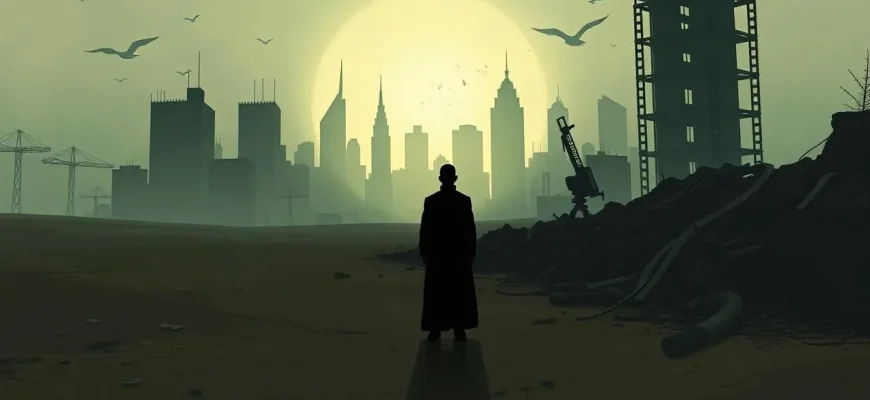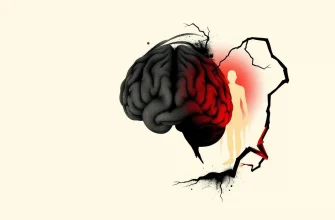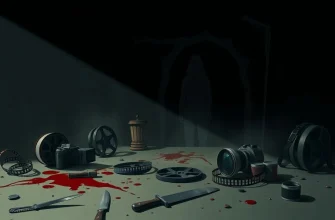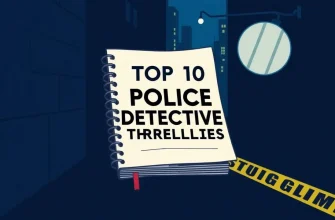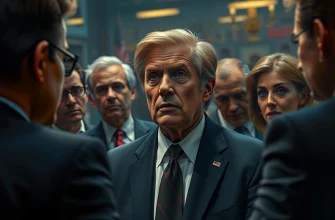In the vast landscape of cinema, some films stand out for their bleak outlook on life, society, and human nature. These movies embrace cynicism and nihilism, often challenging viewers with their dark themes and existential questions. This curated list of 10 films offers a journey into the abyss of human despair, where hope is scarce, and meaning is questioned. Whether you're drawn to the philosophical depth or simply enjoy the dark ride, these films provide a unique cinematic experience that lingers long after the credits roll.

A Clockwork Orange (1971)
Description: Stanley Kubrick's adaptation of Anthony Burgess's novel is a dystopian tale of a violent youth, Alex, who undergoes a controversial aversion therapy. Its exploration of free will, morality, and the nature of violence is deeply cynical.
Fact: Kubrick withdrew the film from UK cinemas due to copycat violence, and it was only re-released after his death.
 Watch Now
Watch Now 
Taxi Driver (1976)
Description: Martin Scorsese's masterpiece follows Travis Bickle, a Vietnam vet turned taxi driver, whose descent into madness and violence paints a grim picture of urban decay and personal alienation.
Fact: The film was controversial upon release due to its graphic violence, but Robert De Niro's performance earned him an Academy Award nomination.
 Watch Now
Watch Now 
Brazil (1985)
Description: Terry Gilliam's surreal, dystopian vision of a bureaucratic nightmare where a lowly clerk's life spirals out of control, showcasing the absurdity and futility of existence.
Fact: The film's ending was a point of contention with Universal Studios, leading to an alternate, more upbeat ending being produced.
 Watch Now
Watch Now 
The Big Lebowski (1998)
Description: While often seen as a comedy, this Coen Brothers' film also explores themes of nihilism through its characters, especially the nihilists themselves, who embody the philosophy in their actions and outlook.
Fact: The Dude, played by Jeff Bridges, was inspired by a real person, Jeff Dowd, who was a friend of the Coen Brothers.
 Watch Now
Watch Now 
Fight Club (1999)
Description: This film delves into the life of an insomniac office worker who forms an underground fight club with a soap salesman, leading to a descent into chaos and anarchy. Its portrayal of consumerism, identity, and the search for meaning in a meaningless world makes it a quintessential nihilistic piece.
Fact: The film was initially met with mixed reviews but has since become a cult classic. The rule "You do not talk about Fight Club" became a popular meme.
 Watch Now
Watch Now 
American Psycho (2000)
Description: Patrick Bateman, a wealthy investment banker, leads a double life as a serial killer, satirizing the excess and superficiality of 1980s Wall Street culture while exploring themes of identity and the emptiness of consumerism.
Fact: The film was initially rated NC-17 but was edited to receive an R rating for wider distribution.
 Watch Now
Watch Now 
The Machinist (2004)
Description: Christian Bale's portrayal of a machinist suffering from insomnia and guilt delves into psychological horror, questioning reality and the consequences of one's actions.
Fact: Bale lost over 60 pounds for the role, showcasing his commitment to the character's physical and mental state.
 Watch Now
Watch Now 
No Country for Old Men (2007)
Description: The Coen Brothers' adaptation of Cormac McCarthy's novel presents a bleak view of morality and fate, where characters are caught in a deadly game with no clear heroes or villains.
Fact: The film won four Academy Awards, including Best Picture, Best Director, and Best Adapted Screenplay.
 Watch Now
Watch Now 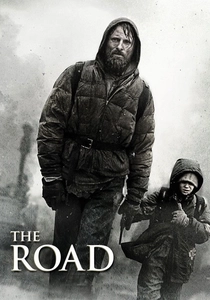
The Road (2009)
Description: This post-apocalyptic tale of a father and son's journey through a devastated America explores themes of survival, hope, and the human condition in its most desperate form.
Fact: The film's bleak setting was shot in various locations including Pennsylvania, Oregon, and Louisiana to capture the desolate landscape.
 Watch Now
Watch Now 
The Lobster (2015)
Description: In a dystopian society where single people must find a romantic partner within 45 days or be transformed into an animal, this film satirizes societal expectations of love and relationships with a dark, absurd humor.
Fact: The film's title refers to the protagonist's choice to become a lobster if he fails to find love, symbolizing his desire for longevity and solitude.
 Watch Now
Watch Now 
